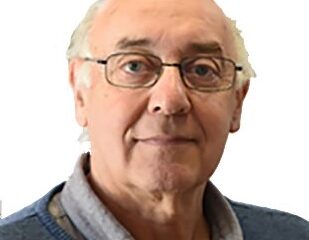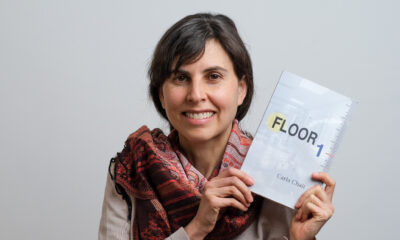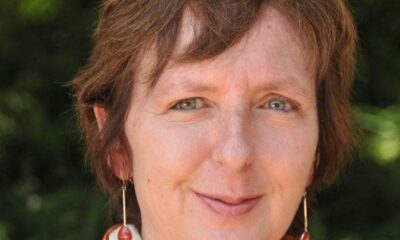
Featured Item
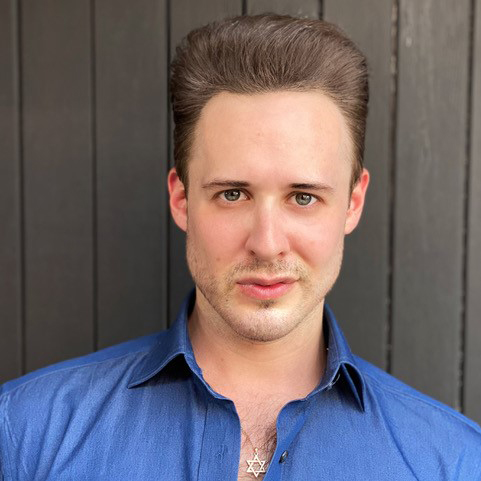
Author throws the book at Jewish angst
Published
2 years agoon
Ben Freeman is a young author, internationally renowned educator, and diversity, equity and inclusion specialist focusing on Jewish identity, combatting Jew-hatred, and raising awareness of the Holocaust. He has just launched his second book, Reclaiming Our Story: The Pursuit of Jewish Pride. The SA Jewish Report caught up with him.
What inspired you to write Reclaiming Our Story?
In my first book, Jewish Pride: Rebuilding a People, I wrote a chapter on internalised anti-Jewishness. However, in that chapter, I described the most extreme manifestations of this phenomenon – Jewish opposition to Zionism. Since the book came out, I have received countless messages and taken part in hundreds of speaking engagements and have been told by Jews literally all over the world that Jewish Pride helped them to process negative feelings about their Jewishness. These people weren’t opposed to Zionism, but they still experienced this phenomenon. It made me realise that this was a much wider problem that required more research in a contemporary context.
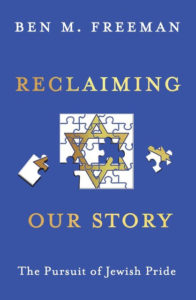
Has antisemitism had an impact on young Jews speaking about Judaism? If so, please explain what you’re seeing?
We’re witnessing two major responses. The first is a coming home to Jewishness for many young people. They’re appalled at what they’re seeing with regards to the rise in Jew-hate, and feel isolated from the communities they previously felt at home in. This is important, but we must cultivate Jewish pride, so their Jewishness isn’t just rooted in fighting Jew-hate. On the other hand, we’re seeing Jews, I believe as a result of internalised anti-Jewishness, turn their backs on Jewishness, or at the very least Zionism (which is a fundamental component of Jewish identity). This is a huge worry, and is why we must recognise internalised anti-Jewishness and work as a community to fight it.
What’s the antisemitism you’re witnessing?
Jew-hatred is growing in every portion of society. From the right to the left to the Muslim community. We’re witnessing online attacks, social exclusion, propaganda, political hate, institutional Jew-hate, and physical violence. Jew-hate has been made normal again and has returned to the centre of society.
In South Africa, antisemitism is cleverly veiled as being anti-Israel. Please can you explain the dangers of this type of antisemitism and the impact it has on Jewish pride.
It teaches young people that to be accepted into the leftist (or progressive) community, they must disavow Israel. This obsessive hatred of Israel is a non-Jewish idea being imposed on Jews. It has a devastating impact on Jewish pride, and is a major driver behind modern internalised anti-Jewishness. This is particularly problematic on campus, as the academy has become a major bastion of Jew-hate.
Many Jews don’t reveal their identity and support for Israel because of fear. What’s the impact of this on us and others?
We live in a culture of fear. This isn’t acceptance, and although some of us can pass as the majority, it isn’t privilege either. To be forced to hide who you are is a form of oppression. We’re taught that our Jewishness is something to be ashamed of, and that we should diminish it. The impact on the wider world is the reinforcement that only certain kinds of Jews are acceptable. Jewish pride is the rejection of shame and non-Jewish perspectives on Jewishness.
When surrounded by people who hate Israel and have lots to say about Israel as an oppressor (particularly on university campuses), how should or could Jewish people respond?
First, Jews should reject the idea internally. This isn’t to say we must close ourselves off from criticism of Israel, we shouldn’t. However, that’s not what this is. Israel isn’t being criticised; it’s being demonised. Jews must know that Israel – and by extension, Jews – isn’t what the world says it is. Second, they must decide for themselves if they feel safe to raise their voices. Most importantly, Jews must never allow the non-Jewish world to define who we are or how we feel about ourselves. We must understand that we deserve to be treated better than we’re treated.
How do we enable ourselves to respond effectively to antisemitism and anti-Israel rhetoric so that we no longer feel afraid of being in situations where we have to face it?
We must educate ourselves. We must know the historical facts, and we must also know the lies that are said about us so we can understand why they are false. The Jewish community (globally) has failed miserably when it comes to Jewish education. We must recommit ourselves to education. Young people must be armed with pride and education as they begin to navigate the world.
There is a growing number of Jewish people who have found a home in the Boycott, Divestment, Sanctions movement or organisations aligned with it. Why do you believe this has happened? How would you respond to them?
Like so many Jews who came before them, they try hard to be “good Jews”, to be palatable, so to speak, so they warp and change themselves to be accepted. They find themselves in spaces where only a particular kind of Jewishness is deemed acceptable. Their Jewishness has been defined by the wider world through the broken mirror of Jewish identity. They have absorbed non-Jewish ideas about Israel, and have incorporated them into their own worldview, and in turn have rejected a fundamental aspect of Jewish identity.
Is there a legitimate anti-Israel stand or is it all antisemitism? If so, what’s a legitimate stand to take?
Of course, fair criticism of Israel is legitimate. Anyone who says otherwise is wrong. Israel can be criticised like any other country. But we must also be aware that that that rarely happens. We must be aware that even something that purports to be criticism of Israel can be anti-Jewish, so we must be particularly careful when engaging in criticism of Israel.
Antisemitism comes in various guises. What are you witnessing in young people?
All the same forms that existed throughout history still exist, it just depends which community you’re talking about. Christian and Muslim Jew-hatred is still there in certain spaces, racial Jew-hatred is still there in many spaces, they all just mingle together. Although we can separate forms of Jew-hate into different categories, we must also understand that they are all connected. Regardless of the source, roughly the same thing is being said about Jews. One of my former students described Jew-hate as “same soup, different bowl” meaning that the outward expression (the bowl) may change, but the core (the soup) stays the same.
Why is it important for us to reclaim our Jewish pride?
Because being Jewish is a wonderful thing. It’s a 4 000-year-old identity, and we should be proud of it, just as every community should be proud of their culture and heritage. The fact that we’re even having this conversation in South Africa in 2022 is a miracle. We’ve survived and thrived, and we must celebrate that. Additionally, Jewishness doesn’t belong to us, it’s our job to cultivate it and maintain it for future generations. What are we passing on if we don’t raise our youth in pride?
What went into researching Reclaiming our Story?
I spent six weeks doing research in Hong Kong during the summer of 2021. There aren’t that many books about internalised anti-Jewishness, so I read the few that are available along with academic articles. I also researched modern Jewish conversations by reading news articles as well as social-media posts. My work is rare in that it incorporates historical and contemporary research. This is important as it allows people to have a bird’s eye view of the topic, enabling them to spot patterns as opposed to understanding it in a silo.
Were there any surprising revelations in your research?
What surprised me the most was that internalised anti-Jewishness has been a part of the Jewish experience for thousands of years. It certainly took on a more prominent role in our communal experience following the enlightenment (as people will read), but it has always been there. Similarly, reading so deeply into the 19th century German Jewish experience made me realise just how similar it was to the 20th century American Jewish experience. I always understood the connections between the two, but even I was surprised by just how close they were.
What do you hope to achieve with Reclaiming our Story?
I hope to educate, inspire, and empower Jews to look inside themselves with empathy and kindness so they can investigate whether they experience some of the manifestations of the phenomenon I describe in this book. I want to continue building and developing the Jewish-pride movement that began with the publication of my first book, Jewish Pride: Rebuilding a People, and I want to help create a culture of healing, so Jews can see their Jewishness as a source of pride, never shame. I hope it speaks to Jews people and helps them feel seen. I also hope it helps non-Jews understand more about the Jewish experience so they can consider how to support our community better.
- Freeman’s book, Reclaiming Our Story: The Pursuit of Jewish Pride is out on 24 October and is published by No Pasaran Media. To pre-order, go to https://www.amazon.co.uk/gp/product/1915036321/ref=dbs_a_def_rwt_bibl_vppi_i1





